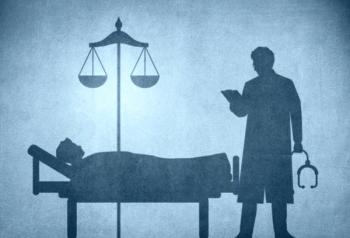
A Physician Ethics Oath for Our Times
Key Takeaways
- Physicians are encouraged to explore innovative advocacy methods beyond traditional political responses to address healthcare challenges.
- Trust in physicians can be leveraged for unique actions, including softening the Goldwater Rule and organizing physician-specific rallies.
Here is an updated ethical oath geared for our time.
PSYCHIATRIC VIEWS ON THE DAILY NEWS
With the federal policies to reduce waste and presumed misguided health care policies, I have noticed that many physicians have wondered what they might do as a counter-response for general health and mental health.
Given the rapidity and scope of the numerous changes, there is some concern that the traditional ways of responding politically may not work well enough this time, such as the national rallies last Saturday. Due to the nature and sensitivity of some leadership, it could even backfire. However, such traditional responses still have value in the sense that people are speaking up and trying, which is also good for their mental health in a time of substantial and rising burnout.
Physicians may have some special opportunities. Given that people tend to still trust their own doctors, perhaps there are endeavors of our own that might be tried, even out-of-the box trials like Senator Cory Booker mentioned in his record-breaking and marathon speech last week, and for which I commented upon in
Here, then are some actions that might be worth trying:
- The Goldwater Rule can be softened, eliminated, or ignored because it may be inhibiting any political responses by psychiatrists, even those allowed under this ethical rule.
- We physicians and psychiatrists could have our own rallies, rather than just participating in more general ones.
- As a further protest, we could set up some work slowdowns.
- We could develop ad hoc groups to address particular concerns.
There is 1 more in further detail. When I was in medical school at Yale back at the end of the 60s, it was a time of increasingly contentious Civil Rights concerns, and now we have related DEI concerns. Given that we did not have any tests at Yale other than 1 national one, that gave us some sense of freedom. One of the outcomes is that we set up a free clinic for the poor in the poor community surrounding the medical school.
As a class, we have stayed in touch over the years, from intermittent reunions to discussing certain needed challenges as we are having right now. One of my classmates came up with a new, yet also traditional, recommendation: an updated ethical oath geared for our time. I recited it to close my video yesterday, and here it is in writing:
A Physician’s Oath for 2025
As a physician, I take an oath to both serve and protect my patients to the best of my ability. This includes the knowledge and skills required to serve them in the way I would want my family served. It also includes an advocacy for my patients to have access to the healthcare they deserve as human beings and fellow members of my greater community. This advocacy may put us at odds with various entities, including for-profit corporations and governments, whose priorities are other than good healthcare for my patients. I will identify, decry and resist efforts on the part of these corporations or governments that will bring harm to or restrict care to my patients. I recognize that this may put me at risk, but I must stand consistent with my ethical obligation to not just serve my patients, but to visibly advocate for them and protect them against the forces that might cause them harm.
Amen.
Dr Moffic is an award-winning psychiatrist who specialized in the cultural and ethical aspects of psychiatry and is now in retirement and retirement as a private pro bono community psychiatrist. A prolific writer and speaker, he has done a weekday column titled “Psychiatric Views on the Daily News” and a weekly video, “Psychiatry & Society,” since the COVID-19 pandemic emerged. He was chosen to receive the 2024 Abraham Halpern Humanitarian Award from the American Association for Social Psychiatry. Previously, he received the Administrative Award in 2016 from the American Psychiatric Association, the one-time designation of being a Hero of Public Psychiatry from the Speaker of the Assembly of the APA in 2002, and the Exemplary Psychiatrist Award from the National Alliance for the Mentally Ill in 1991. He presented the third Rabbi Jeffrey B. Stiffman lecture at Congregation Shaare Emeth in St. Louis on Sunday, May 19, 2024. He is an advocate and activist for mental health issues related to climate instability, physician burnout, and xenophobia. He is now editing the final book in a 4-volume series on religions and psychiatry for Springer: Islamophobia, anti-Semitism, Christianity, and now The Eastern Religions, and Spirituality. He serves on the Editorial Board of Psychiatric Times.
Newsletter
Receive trusted psychiatric news, expert analysis, and clinical insights — subscribe today to support your practice and your patients.







